INDUSTRY LINKS CASE STUDY
Supporting cadets on successful engineering pathways
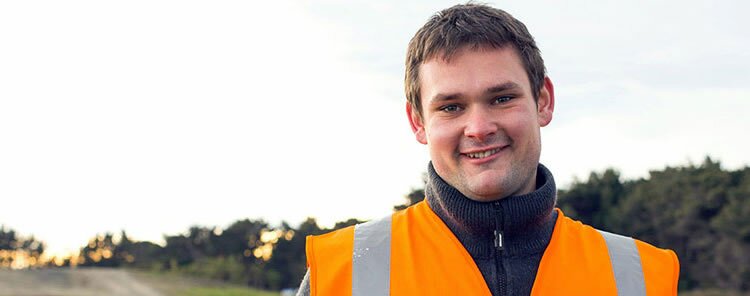
Having run a successful cadetship programme for some years, in 2013 Downer decided to extend its support for cadets and align the scheme with the degree graduate programme. Here we present Downer’s re-vamped cadetship scheme, and the newly inclusive ‘Young Professionals’ group.
Extending a cadetship programme
Having run a successful cadetship programme for some years, in 2013 Downer decided to extend its support for cadets and align the scheme with the degree graduate programme. Here we present Downer’s re-vamped cadetship scheme, and the newly inclusive ‘Young Professionals’ group.
Downer cadetships
The Downer cadet programme offers New Zealand Diploma in Engineering (NZDE) students the opportunity to earn money and get work experience while completing their study. As well as allowing time off for cadets to attend courses, the company covers all costs incurred: fees, textbooks, stationery, and any travel or accomodation costs for courses. Cadets are also provided with equipment and clothing.
Promoting the diploma pathway into engineering
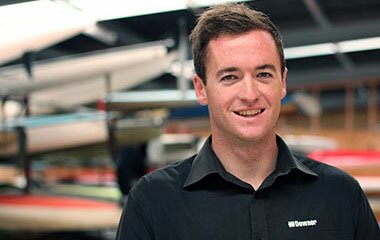 Downer’s senior leaders come from different education backgrounds, and they appreciate the benefits of the NZDE. Recognising the practical application of learning that the cadets bring to their work, they wanted more cadets to join the company. Cadets are included in the ‘talent pipeline’ forecast every year. 5% of the Downer workforce must be in the talent pipeline, and this creates a strong, supportive environment for young people. Cadets are valued in the same way that the degree graduates are - the mix of degree and diploma-educated engineers in the business reflects this.
Downer’s senior leaders come from different education backgrounds, and they appreciate the benefits of the NZDE. Recognising the practical application of learning that the cadets bring to their work, they wanted more cadets to join the company. Cadets are included in the ‘talent pipeline’ forecast every year. 5% of the Downer workforce must be in the talent pipeline, and this creates a strong, supportive environment for young people. Cadets are valued in the same way that the degree graduates are - the mix of degree and diploma-educated engineers in the business reflects this.
Senior Learning Advisor Lisa Stafford manages the cadet and degree graduate programmes, with 95 cadets and 93 graduates.
Most cadets are recruited during their NZDE studies, while some, including one in his late 30s, have been employed in the workforce and are changing career direction. Downer doesn’t usually take school leavers as cadets, preferring students who are already enrolled and committed to tertiary study and engineering. However, if a promising school student should join the company, for example through a Gateway scheme, there is always the opportunity to offer an apprenticeship which may then lead to a diploma.
The extended cadetship programe
There are many aspects to the re-vamped programme – here’s how it works.
Rotations
The scope of the cadet programme was extended to include a set rotation system, with cadets spending three months in a variety of areas – Maintenance, Quoting, Estimating, Chip Sealing and Major Projects. Regular rotation required a change in mindset for both cadets and managers. Rotations are strictly adhered to, so cadets cannot stay in one area and managers canot ‘talent hoard’ and keep someone who they feel is doing particularly well in their department. This means cadets are not specialising too early in their career and are developing broad foundation skills. It also allows managers to plan work and manage resources because they know they will have a cadet for twelve weeks.
Cadets are expected to take personal responsibility by completing their work by the end of a rotation and facilitating the handover. It is not acceptable to walk out and leave a project unfinished.
Block courses
Downer cadets attend block courses for their Diploma. Some education providers work on models such as one-day-a-week courses, however these don’t suit Downer. “About 90% of our cadets work through the New Zealand Institute of Highway Technology (NZIHT) because their block courses are better for us, from an operational point of view. Managers prefer it, as they can work their timetable and project more efficiently than if they had someone coming and going every week,” Lisa says.
If a cadet fails a course, it’s up to them to study in their own time and pay the fee to resit the paper. And, says Lisa, they generally do retake it.
The buddy system
The buddy programme involves informal tutoring, often over a cup of coffee in the cafe, where graduates and more experienced engineers help cadets with their study. If a cadet is worried about the next block course on hydraulics, for example, Lisa will seek out one of the graduates and ask if they would be prepared to help.
Cadets can approach Lisa if they need extra help and she puts out an email seeking a study buddy. However, she cautions, they don’t spoon feed the cadets. It’s up to them to make contact with the buddy to organise the help. “Sometimes when a cadet fails a paper I’ll ask if they sought help beforehand...and they’ll say no. Again, it’s a case of personal responsibility, something the graduates have had to take on during their studies but which some cadets have to learn and pick up.”
Mentoring
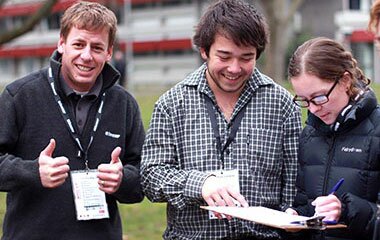
Cadets are assigned a mentor, and support is also provided by peers and managers. The mentoring relationship is mentee driven, so the cadet must arrange and plan the meetings. Cadets also have six-monthly appraisals to track their progress. Some are keen to continue study towards a Bachelor of Engineering Technology; in consultation with managers, Downer may support a cadet to do this.
The pathway into project management roles
An important aspect of the revamped cadetship programme is that Downer actively reviews cadets’ progress with a view to them becoming future leaders, with some working towards roles in project management.
In reviewing who will be considered for project manager roles, NZDE, BEngTech and BE graduates are treated equally. Managers need to manage diverse crews – multigenerational, people with English as a second languge, and some who have problems with literacy or maths. Regardless of education, Downer seeks people with good interpersonal skills to take on these types of roles.
Young Professionals Group
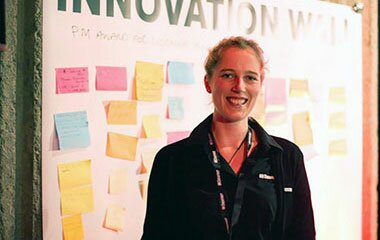
In previous years, a Young Professionals Group provided an opportunity for degree graduates to meet with their peers but nothing similar existed for the cadets. The Young Professionals Group is now open to both and is proving successful. A typical event has a guest speaker and presentations from cadets and graduates. Young Professionals often bring along their portfolios to seek advice or share with others. The groups usually network at the end over pizza and senior engineers are invited to join in.
The Downer Young Professionals Conference is held every year, with opportunities for networking and professional development. There are three awards for cadets presented at the awards ceremony: Leadership, Project Manager and Technical Excellence.
What if they leave?
It’s an obvious concern for any company – if you’ve invested in training, mentoring and financial support you don’t want to see cadets up and leave, providing another company with the benefits of your costs.
Is bonding the answer? For some companies that might be a solution. Downer doesn’t have a bonding agreement but this is discussed with the managers when a cadet leaves. When a good cadet leaves to do their OE or join family overseas, for example, Downer may leave the door open. When they do return Downer would like them to make contact, and many employees come back to the company this way.
Any advice?
A company thinking of starting a cadetship programme should consider developing a relationship with their local ITP, says Lisa. In addition to being a source of potential cadets, the benefit of such a relationship is in involving locals in study and providing work for them. Downer is also involved with Te Puni Kokiri, which helps fund cadetships for Maori.
It’s also important to provide a rotation programme for cadets, although that can be more difficult for a smaller company. This is where cross-industry relationships come in. A company can second their cadets to a firm which covers aspects of work which it can’t provide. Downer is involved in secondments with its degree graduates – for example, they send two to GHD for more experience before specialising and take two in return.
If you’d like to find out more about the Downer programme, contact Lisa: .
Our thanks to Lisa for her time and advice. If you have any other questions, get in touch: .
January 2015
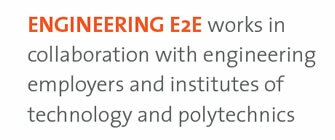 |
 |
 |
||
 |
||||
 |
||||
 |






